NO MATTER HOW hard you search, when it comes to leg day essentials, it’s almost impossible to dethrone the king: the back squat.
But there’s a whole lot more to squats than simply loading weight on a bar, placing it on your shoulders, then knocking out a heavy rep. Since the back squat depends on so many more muscles than just your legs, it can take a full checklist of spots to be successful—from your posterior chain and upper body muscles to your hips and knees to your ankles and feet. You’ll need to think of more than just your quads, glutes and hams to complete a fundamentally sound squat that will be safe and effective for whatever strength-training goals you may have, say Men’s Health fitness director Ebenezer Samuel, C.S.C.S., and Advisory Board member David Otey, C.S.C.S.
“Doing a back squat is way more challenging and way more technical than people give it credit for,” Otey says. “So it’s important that you can check a lot of boxes so you can make sure that your back is strong enough. Your posture is in the right position, your hips can sustain it so you can truly do a back squat safely and effectively.”
One thing you can do to put yourself in a better position to excel in the back squat is to train the most important support muscles you’ll need to depend on to tie your form together. You can try these exercises to get into the best possible position for more powerful, safer squats.
5 Exercises for Stronger Squats
Band Resisted Plank
It’s worth repeating that squats are a full-body exercise. The ability to brace yourself and maintain a solid posture as you’re holding a ton of weight across your shoulder blades is essential—and the squat technique element most often neglected is mastering lat engagement, which is necessary to secure the bar rep after rep.
Fighting against the resistance band while maintaining the plank position forces your lats to engage and reinforces rigidity. Otey suggests looping a band behind each elbow, then walking your feet back until you’re in a position of work. You’ll be challenged to both brace your core and keep your lats engaged—exactly what you want in a back squat.
Band resistance planks can be used in any workout—even every day if desired. Work your way to about three sets of 20 to 30 seconds of planks.
Front Foot-Elevated Split Squat
To keep squatting both safely and effectively over time—especially as you begin progressing in weight—you’re going to need healthy lower body range of motion (ROM). This move is one of the most effective ways to increase your ROM. Front foot-elevated split squats can be done with kettlebells or dumbbells and require minimal elevation—stacking two or three weight plates should be enough.
This will allow your hips to travel below your knees during each rep, which is an important factor for your squats. An additional benefit is this type of split squat allows you to focus on working on stabilizing some of your smaller stabilizer muscles that may not get the work in other exercises.
“We’re going to be really, really aware of our hip position,” Samuel says. “We have to keep those square to the front. So we’re creating a lot of good core tension.”
One important form note to remember is that you should be aiming to move vertically, not diagonally. That means that your goal shouldn’t be to lean forward dramatically; instead, you’re just squatting up and down within that staggered stance. “The goal is you want to descend vertically and ascend vertically,” says Otey.
Since this movement can be done with just light weight or even bodyweight, shoot for around 15 to 20 reps. If you choose to go heavier, stay in the six to 10 rep range.
Step Up
The step up has a reputation as a basic beginner move, but when you do them properly, you can turn it into a brutally effective squat accessory move.
Why? A properly executed step up will force you to work on planting, the driving one foot from the box while you’re working on controlling the other foot during the descent. This is a critical back squat step, especially as loads get heavier. Step ups also force you to focus a bit more on your positioning as you dip into the eccentric portion of the move, since your torso will naturally lean forward as you lower.
When it comes to box height, Samuel and Otey suggest that you keep it around six to 18 inches—any higher becomes counterproductive for most people. And because it’s slower-moving exercise when done properly, three to five sets of three to five reps is a good starting point. If you can keep the reps quality shoot for five to 10.
Romanian Deadlift
This hip-hinge movement will provide plenty of glute activation each time you “push” your butt back on the descent. Another benefit of the RDL is that the exercise forces you to drop your torso to parallel with each rep. The goal is to move the hips back as far as possible, which will help to maximize your range of motion.
This movement will come in handy again as you begin bracing yourself for a big squat day.
One thing to be aware of: Make sure that you’re keeping the weight close to your body during each rep–don’t let it swing too far forward. That extra bit torque from the dangling weight will start to add unnecessary stress to your lower back while taking away the work from its intended target, your hips.
A good formula may be a two to three second descent and brief pause before returning to a starting position. Go for about three to four sets of eight to 10 reps.
Goblet Squat
Despite its countless benefits, the goblet squat is still thought of as a beginner exercise.
With goblet squats—whether with a dumbbell or kettlebell—you’ll be forced to work from a more upright position throughout the movement than you would from other squats. Work toward going as deep as possible, but take your time, especially if depth is a problem with your squat patterns. Get a good feel of how far you can go, then begin working toward improvements
And don’t be afraid to load heavy with this—work toward a goal of 50 percent of your body weight for quality reps—this will surely require plenty of body bracing.
Keep the reps as high as possible—12 to 15 is a great starting point, even higher if possible—for a great leg day finisher. Because it’s a safe squat variation, you can even go to fatigue, just simply drop the weight when you’re done.
Jeff Tomko is a freelance fitness writer who has written for Muscle and Fitness, Men’s Fitness, and Men’s Health.
Brett Williams, a fitness editor at Men’s Health, is a NASM-CPT certified trainer and former pro football player and tech reporter who splits his workout time between strength and conditioning training, martial arts, and running. You can find his work elsewhere at Mashable, Thrillist, and other outlets.


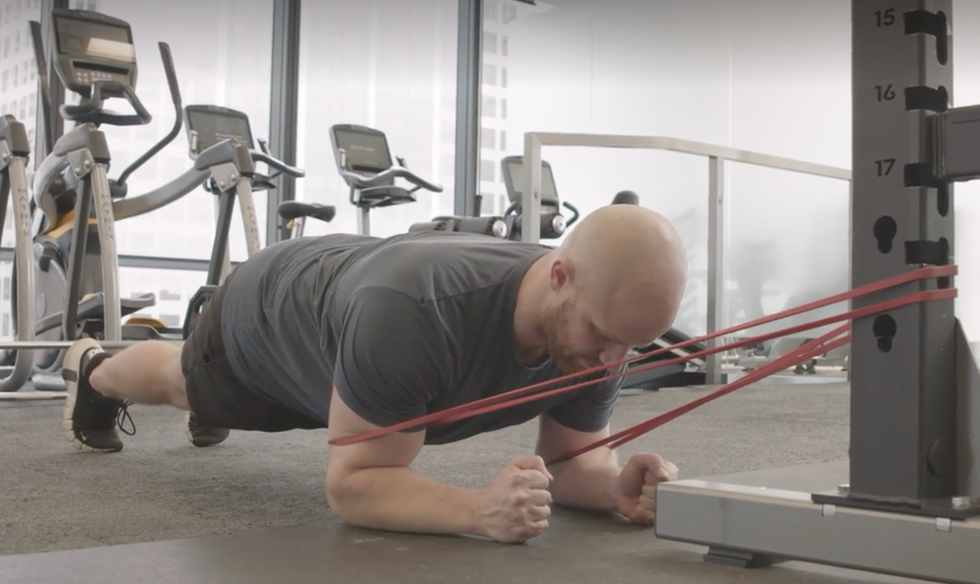
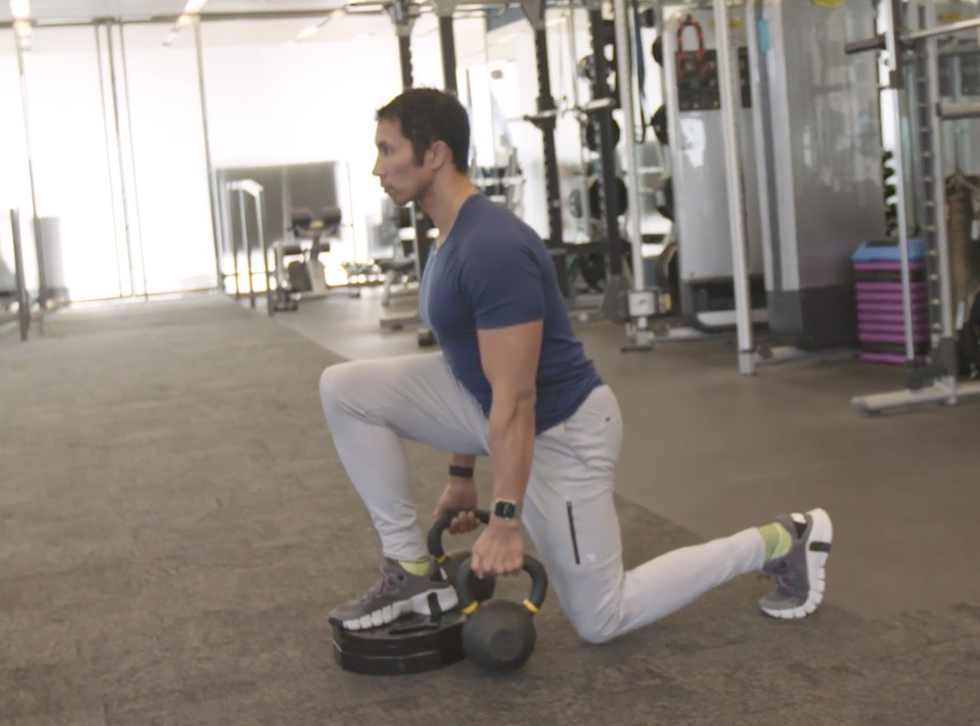
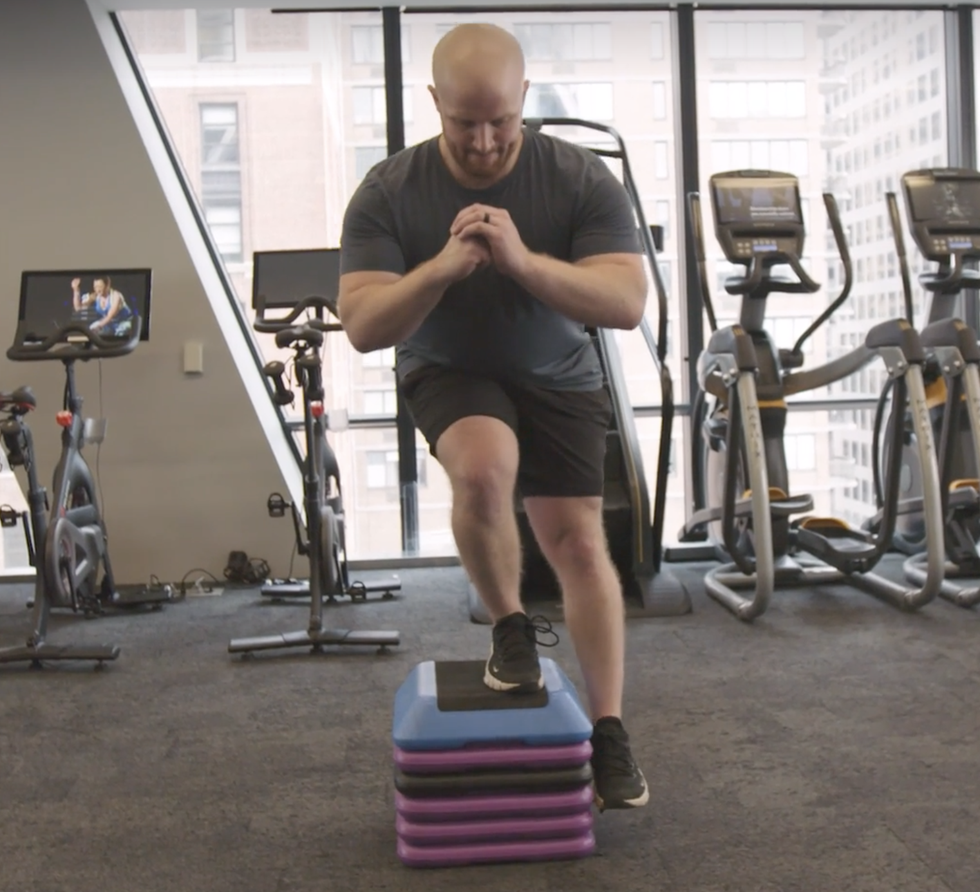
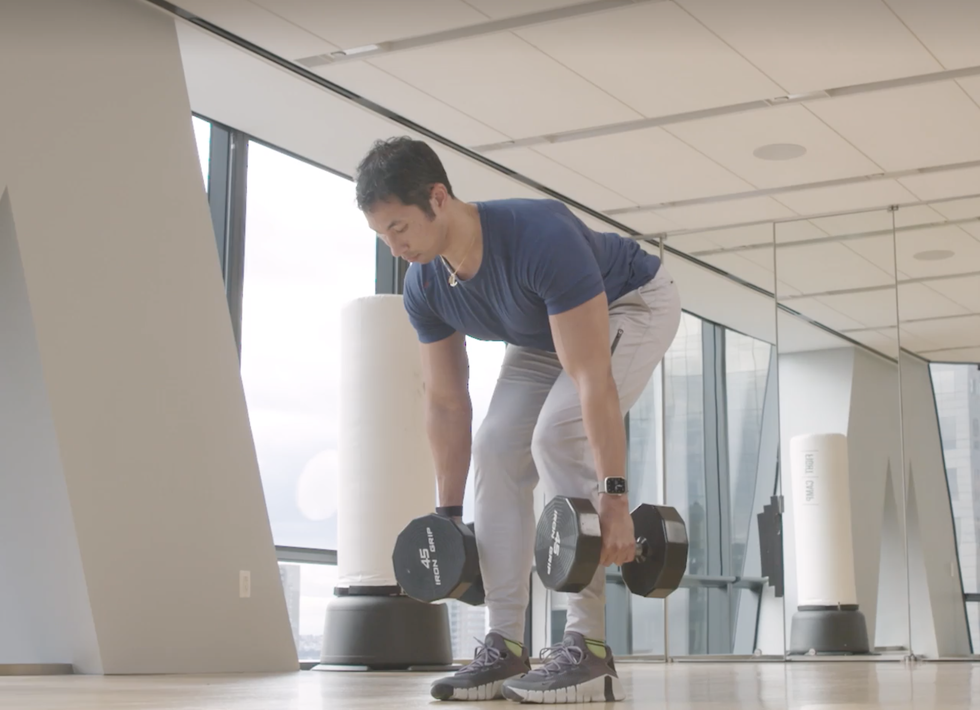
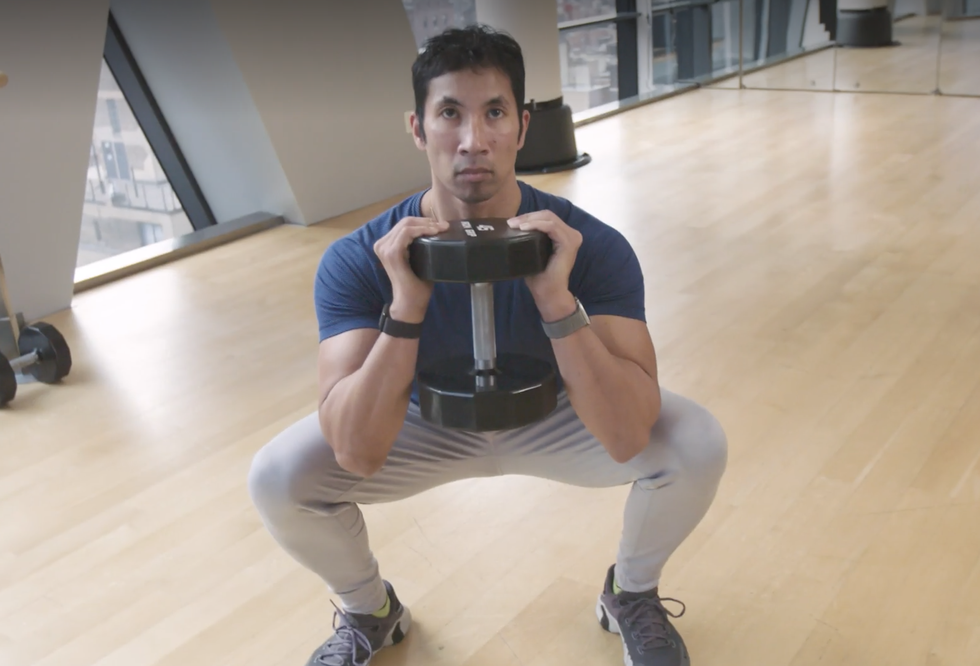
Comments are closed.